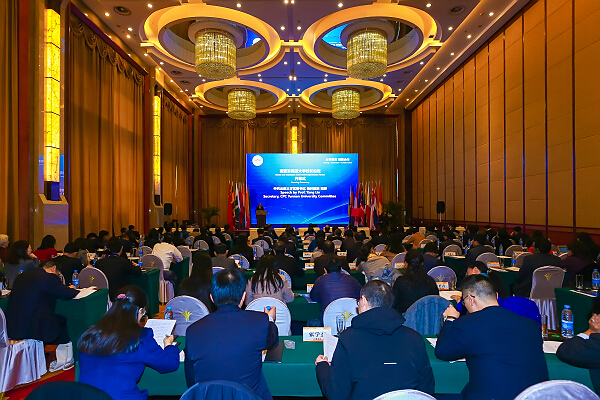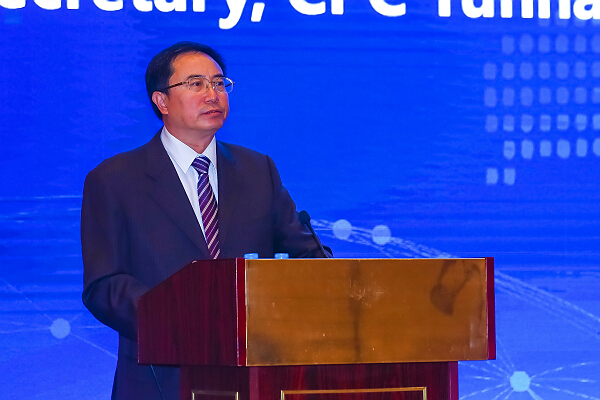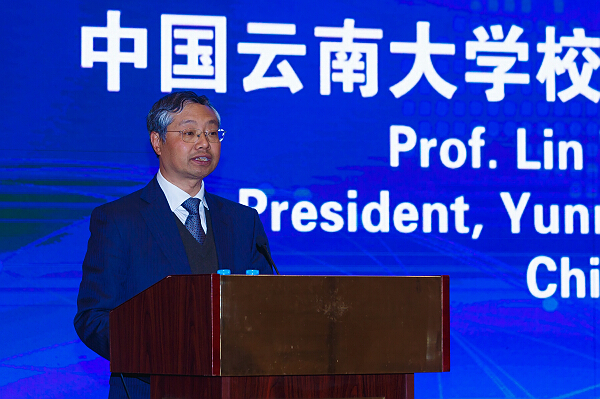Updated: 2017-11-26(Yunnan University)
The South and Southeast Asian Rectors Forum organized by Yunnan University (YNU) opened in Kunming – capital of Southwest China's Yunnan province on Nov 26 – with the theme of "sharing education, innovation cooperation".
Presidents and representatives from 20 universities in South and Southeast Asia and 30 universities in China gathered in Kunming to discuss regional international cooperation and development plans for higher education.

The South and Southeast Asian Rectors Forum is held on Nov 26 in Kunming, capital of Yunnan province. [Photo/ynu.edu.cn]
At the opening ceremony, the Yunnan Provincial Department of Education announced that the region's government had given the green light to YNU to establish the Belt and Road Research Institute of Yunnan Province.
It jointly unveiled the research institute with Yang Lin, Party secretary of YNU.

Yang Lin, Party secretary of Yunnan University delivers a keynote speech. [Photo/ynu.edu.cn]
Wang Jiwu, chairman of TusHoldings, donated 10 million yuan ($1.54 million) to YNU as a research fund for the research institute, while Feng Xuelan, vice president of Yunnan Health & Cultural Tourism Holding Group Co, donated another 10 million yuan as the research construction awards fund.
In his keynote speech, Lin Wenxun, president of YNU, unveiled an initiative to establish the South and Southeast Asian University Network.
The network will aim to boost understanding between China and South and Southeast Asia, build a regional higher education exchange and cooperation platform, and promote cooperation and research, Lin said.

Lin Wenxun, president of Yunnan University, talks at the event. [Photo/ynu.edu.cn]
Since 2015, YNU has moved towards multi-subject and multi-level participation in internationalization.
Especially after being listed by the country in 2017 as one of the first "double first-class" universities – a national policy designed to create world-class universities – it has actively undertaken international exchanges and cooperation, to train top-flight people and develop first-class disciplines.